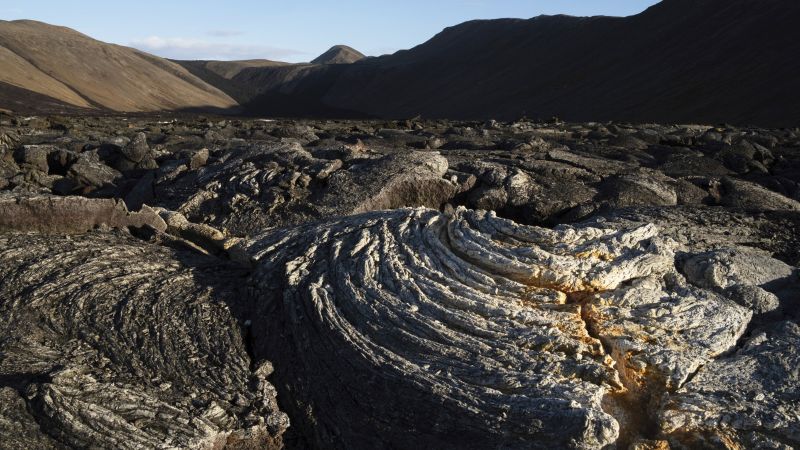CNN
—
Iceland has declared a state of emergency, with police officials urging residents to evacuate the coastal town of Grindavík following an intense wave of earthquakes in the southwest of the country linked to a possible volcanic eruption.
Nearly 800 quakes were recorded between midnight and 2 p.m. on Friday, with the shallowest at a depth of 3-3.5 kilometers (1.86-2.18 miles), according to the Icelandic Meteorological Office.
In statements Friday, Iceland’s Civil Protection Agency said a magma tunnel that is forming could reach Grindavík. But as of Friday evening, the Icelandic authority said it has been impossible to tell if and where the magma might break through to the surface.
“Earthquakes may become bigger than those that have already occurred, and this sequence of events could lead to an eruption. However, there are still no signs that the magma is nearing the surface. Its progress is being closely monitored,” the Civil Protection Agency said.
Magma is a mixture of molten and semi-molten rock found beneath the surface of the Earth that can cause an eruption when it finds its way to the surface, becoming lava.
Authorities urged residents to evacuate calmly and emphasized that there is no imminent danger.
“We want to reiterate that residents MUST evacuate their homes and leave the town. But we also want to reiterate that this is not an emergency evacuation, there is plenty of time to prepare, secure things and drive out of town calmly,” the Civil Protection Agency said.
“It is clear that we are dealing with events that we Icelanders have not experienced before, at least not since the eruption in Vestmannaeyjar. We faced that together, we will face this together and we will not lose heart,” the Civil Protection Agency added.
The US Embassy in Iceland issued a volcano alert, warning about the increased signs of volcanic activity.
“If an eruption occurs, follow the instructions of Icelandic authorities. Volcanic hazards may include lava, toxic gases, and heavy smoke from fires ignited by lava,” it said.
The world-famous Blue Lagoon thermal pool in the area has already closed due to the ongoing seismic activity.
Since 2021, there has been an eruption almost every 12 months and the latest one took place in July south of Iceland’s capital Reykjavik.
Iceland sits on a tectonic plate boundary that continually splits apart, pushing North America and Eurasia away from each other along the line of the Mid-Atlantic Ridge. It is home to 32 active volcanoes.





